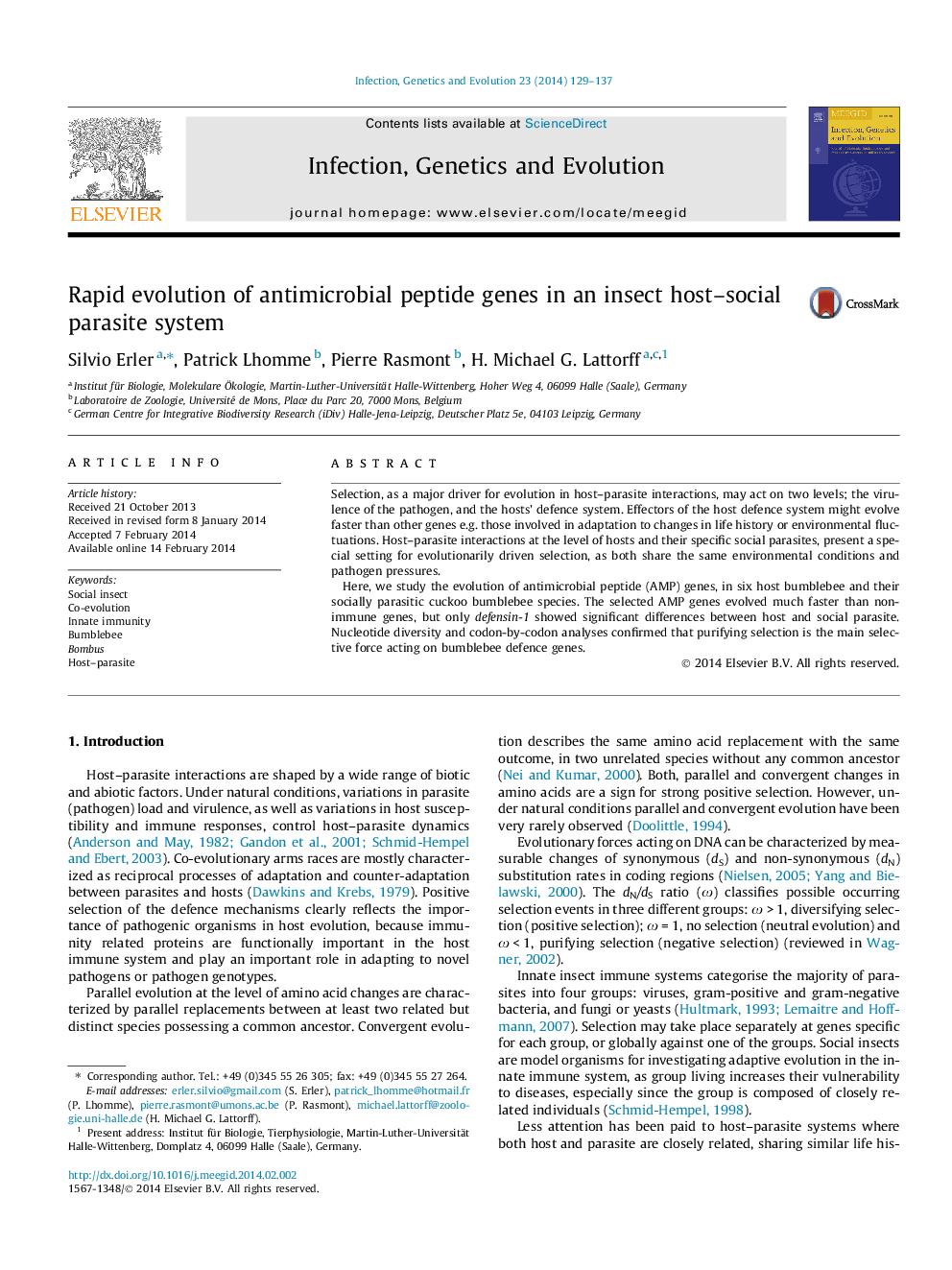| کد مقاله | کد نشریه | سال انتشار | مقاله انگلیسی | نسخه تمام متن |
|---|---|---|---|---|
| 5909913 | 1570180 | 2014 | 9 صفحه PDF | دانلود رایگان |
- Selection favors host defense system evolution in host-parasite interactions.
- Bumblebee immune genes evolve much faster than non-immune genes.
- Purifying selection is the main selective force on social insect host defence.
- Bumblebee AMP gene selection seems to be tangled in lineage-specific arms races.
- No evidence that closely related species show adaptations in similar ways.
Selection, as a major driver for evolution in host-parasite interactions, may act on two levels; the virulence of the pathogen, and the hosts' defence system. Effectors of the host defence system might evolve faster than other genes e.g. those involved in adaptation to changes in life history or environmental fluctuations. Host-parasite interactions at the level of hosts and their specific social parasites, present a special setting for evolutionarily driven selection, as both share the same environmental conditions and pathogen pressures.Here, we study the evolution of antimicrobial peptide (AMP) genes, in six host bumblebee and their socially parasitic cuckoo bumblebee species. The selected AMP genes evolved much faster than non-immune genes, but only defensin-1 showed significant differences between host and social parasite. Nucleotide diversity and codon-by-codon analyses confirmed that purifying selection is the main selective force acting on bumblebee defence genes.
Journal: Infection, Genetics and Evolution - Volume 23, April 2014, Pages 129-137
